







Read More
Presently, FPS AdtU offers M. Pharm programmes in Pharmaceutics and Pharmacology. These programmes were established to fulfil the need for specialized knowledge in the NER region and to encourage graduates to continue their higher studies. A key objective of offering the M. Pharm programmes was to drive ongoing research activities by involving postgraduate students. As a result, postgraduate students have opportunities to advance their studies to the PhD level and select a career that aligns with their passions.
Year wise Course Details
Courses for this semester
Pharmacology Practical-I – Involves the study of drugs, routes of drug administration, pharmacodynamics, and pharmacokinetics of the drugs. This subject caters to in-depth knowledge on handling various equipment and developing animal models for screening, the molecular and cellular mechanism of action, deficiency and excess release related endocrine disorders employed in drug discovery and development, and various targets for drug discovery. Understand different guidelines like CPCSEA, OECD, ICH, USFDA, Schedule Y guidelines, different methods of drug analysis by analytical instruments and ethical requirements for the usage of experimental animals.
Modern Pharmaceutical Analytical Techniques mainly focuses on the analytical instruments used for analysis of drugs by using U.V, I.R, Spectrofluorimetry, Flame Emission spectroscopy, Atomic Absorption spectroscopy, N.M.R, Mass, Chromatography, Electrophoresis, X-Ray crystallography, RIA and ELISA.
The course explore into both foundational and advanced pharmacological aspects, facilitating an understanding of disease pathophysiology, drug classifications, mechanisms of action, adverse effects, contraindications, and interactions. It also provides insights into recent advancements in drug therapy for diverse diseases, emphasizing the molecular basis of drug effects to ensure their safe and effective utilization.
The course focuses on the cellular and molecular principles of pharmacology, in particular on the mechanisms involved in the interactions of pharmacological agents with cells, specific tissues and/or organs such as the cardiovascular or nervous systems or physio-pathological situations such as inflammation.
This course is designed to impart the knowledge on preclinical evaluation of drugs and recent experimental techniques in the drug discovery and development. The subject content helps the student to understand the maintenance of laboratory animals as per the guidelines, basic knowledge of various invitro and in-vivo preclinical evaluation processes.
MPL106NA SeminarsAssignment
Courses for this semester
This course introduces the fundamental principles and practices of toxicology, including dose-response and toxicokinetic analysis. It will also cover reproductive toxicology, Toxicokinetic evaluation in preclinical studies. IND enabling studies (IND studies) emphasize understanding mechanisms for these responses.
The course explore into both foundational and advanced pharmacological aspects, facilitating an understanding of disease pathophysiology, drug classifications, mechanisms of action, adverse effects, contraindications, and interactions. It also provides insights into recent advancements in drug therapy for diverse diseases, emphasizing the molecular basis of drug effects to ensure their safe and effective utilization.
This course aims to provide students with an understanding of the process of drug discovery and development from the identification of novel drug targets to the introduction of new drugs into clinical practice. It covers the basic principles of how new drugs are discovered with emphasis on lead identification, lead optimization, classification and kinetics of molecules targeting enzymes and receptors, prodrug design and applications, as well as structure-based drug design methods. Recent advances in the use of computational and combinatorial chemistry in drug design will also be presented. The course is further enhanced with invited lectures on recent developments and applications of drug design principles in the pharmaceutical industry.
The course covers the regulatory requirements for conducting a clinical trial, and different types of clinical trials including the responsibilities of key players involved in clinical trials as well as documentation requirements for clinical trials. Moreover, it covers Adverse drug reactions and their management and ADR reporting, methods and tools used in Pharmacovigilance. It will give basic information on Pharmacoepidemiology, pharmacoeconomics and safety pharmacology.
Pharmacology Practical-II – Involves the study of all about drugs, what drugs do to living organisms and how their effects can be applied to therapeutics. This subject caters in-depth knowledge on handling various equipment and developing animal models for screening, the molecular and cellular mechanism of action, deficiency and excess release related endocrine disorders, alternative methods for animal toxicity testing employed in drug discovery and development, and various targets for drug discovery, various lead-seeking methods and lead optimization, designing different protocols, regulations and ethical requirements for the usage of experimental animals.
Master's in Pharmacy program, a seminar or assignment would typically aim to enhance students’ knowledge and skills in various aspects of pharmaceutical science. This could involve: 1. Literature Review: Conducting an in-depth review of recent research papers, articles, or textbooks related to a specific topic in pharmaceutics. 2. Experimental Research: Designing and conducting experiments related to drug formulation, delivery systems, or pharmaceutical processes. 3. Case Study Analysis: Analyzing real-world pharmaceutical cases or industry-related challenges and proposing solutions. 4. Drug Development Project: Collaborating on a project to develop a new drug formulation or pharmaceutical product. 5. Regulatory Compliance: Researching and presenting on pharmaceutical regulations and quality control standards. 6. Presentation and Communication Skills: Developing student’s ability to communicate complex pharmaceutical concepts effectively through presentations or written reports.
Courses for this semester
MRM304NA
MRM303NA
MRM302NA
Research Methodology & Biostatistics Identifies the overall process of designing a research study from its inception to its report. Familiar with ethical issues in educational research, including those issues that arise in using quantitative and qualitative research. Identify a research problem stated in a study.
Courses for this semester
The Journal Club course in a Pharmaceutics master's degree program is designed to enhance students' critical thinking, research analysis, and communication skills. This course focuses on reviewing and discussing current research articles, publications, and studies related to pharmaceutical sciences, drug development, and other relevant topics.
The Research Work course in a Pharmaceutics master's degree program is typically a core component of the curriculum and aims to provide students with hands-on experience in conducting original research in the field of pharmaceutical sciences. This course is designed to develop students' research skills, including project planning, experimental design, data collection, analysis, and presentation.
The Discussion Presentation or Proposal Presentation course in a Pharmaceutics master's degree program is designed to enhance students' abilities to communicate research findings, proposals, or ideas effectively. This course typically focuses on developing presentation skills, critical thinking, and the ability to communicate complex scientific information clearly and persuasively.

CST- Common scholarship test is a national and international level online MCQ based examination funded for intellectual empowerment by Assam down town University.
CST- Maximum enrolment each year is 120 seats and any 10+2 students can apply. Adtu is northeast India’s first placement driven university to provide 100% scholarship benefits worth 10 cr.
CST aims to inspire brilliant and competent students to pursue further education. Accredited with a prestigious grade by NAAC, UGC and AICTE.
Explore more scholarships that can help you reach out your goal with financial aid.
This scholarship is valid on the basis of the board/university examination
| 95% & above | 100% Scholarship on all semester |
| 90%-94.9% | 50% Scholarship on all semester |
| 80%-89.9% | 25% Scholarship on all semester |
This scholarship is valid on the basis of the board/university exam
| National & International Level | 100% Scholarship on all semester |
| State Level | 50% Scholarship on all semester |
| District Level | 25% Scholarship on all semester |
This scholarship is valid on the basis of the board/university exam
| National & International Level | 100% Scholarship on all semester |
| State Level | 50% Scholarship on all semester |
| District Level & NCC Certificate Holder | 25% Scholarship on all semester |
Discover a multitude of world-class amenities and cutting-edge resources at Assam down town University, enhancing your academic journey to new heights.
The Start-Up & Incubation Centre at Assam down town University provides a supportive environment for young entrepreneurs to develop and grow their business ideas. The center provides mentorship, funding, and networking opportunities to help innovative ideas become successful businesses.
SFURTI scheme to support rural entrepreneurs and innovators, an initiative by the Ministry of MSME
TIDE 2.0 scheme for ICT-based startups which provides a grant of Rs. 4L and Rs. 7L under EiR and Grant categories respectively, an initiative by the Ministry of MeitY.
dtVL Ideation, an incubation program for early-stage entrepreneurs with a market-ready solution/product, offering interest-free loans up to Rs. 2 lakhs.
Sprout UP, an incubation program for students, faculties, and researchers with innovative business ideas, prototypes, or technology solutions.





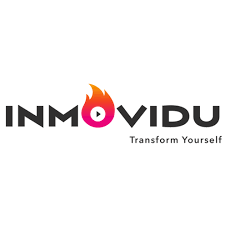

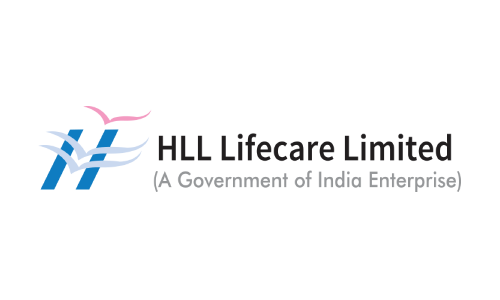





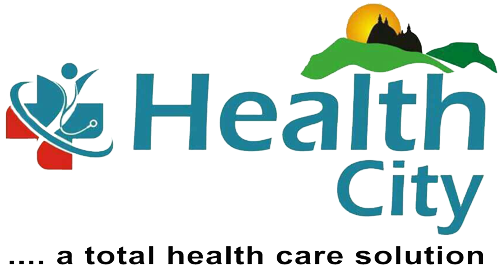



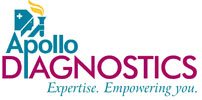













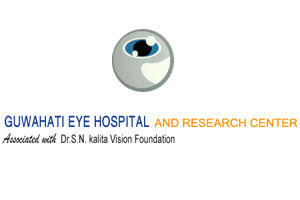












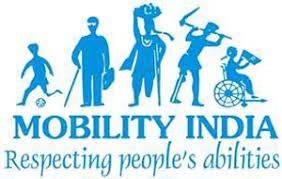





"I am a BBA student of 3rd semester. I hail from Bhutan. I vow that I am having a great experience i...
"AdtU is amazing. I am a BBA student of 2019-22 batch and I am just grateful for the amount of oppor...
Let us be grateful to the people and place who makes us happy. They are the charming gardeners whom ...
Currently I am pursuing MBA in Assam Down Town University. MBA is the professional course through wh...
AdtU is a university that focuses on giving knowledge, education and simultaneously making the stude...
The Assam downtown University has been a great learning experience. The university has provided me w...
My experience with AdtU has been splendid one indeed. Little needs to said about its scenic infrastr...
As a student I am very glad that I have got an opportunity to study here in Assam downtown universi...
My name is Sakhyajit Roy. I?m from Tripura. I joined the university on Auguest, 2017 as a student of...
I share immense pleasure to share my post graduate program experience in Assam down town University....
AdtU is a platform where I got golden opportunities to feed my zeal for knowledge through the dynami...
I am fortunate to get an opportunity to study here in Assam Downtown University. The best thing abou...
Our university is one of the best place for developing ourselves in the field of research and acedem...
ADTU is a university that is very good interms of infrastructure, academics and placements. Our tea...
It is one of best private colleges in North East India, it also provides a good environment for ed...
ADTU is a good University which provides the students with best quality lectures and ensures comfort...
The environment of Assam downtown university is very pleasant.The department of BMLT is very good a...
The university has all the necessary facilities and amenities for students . The classrooms and the ...
Assam downtown University is well recognised all over india. In the ongoing pandemic situation it ha...








